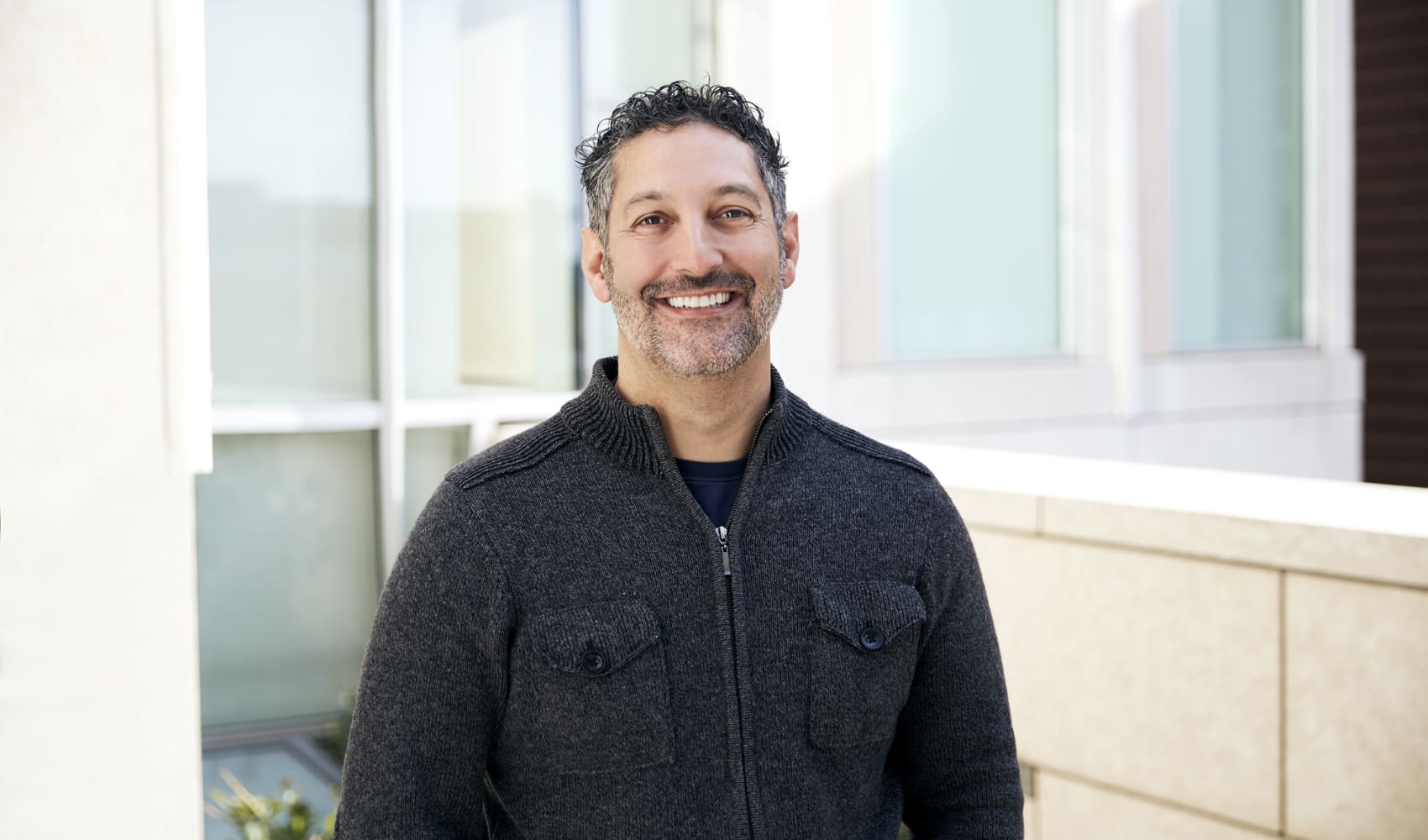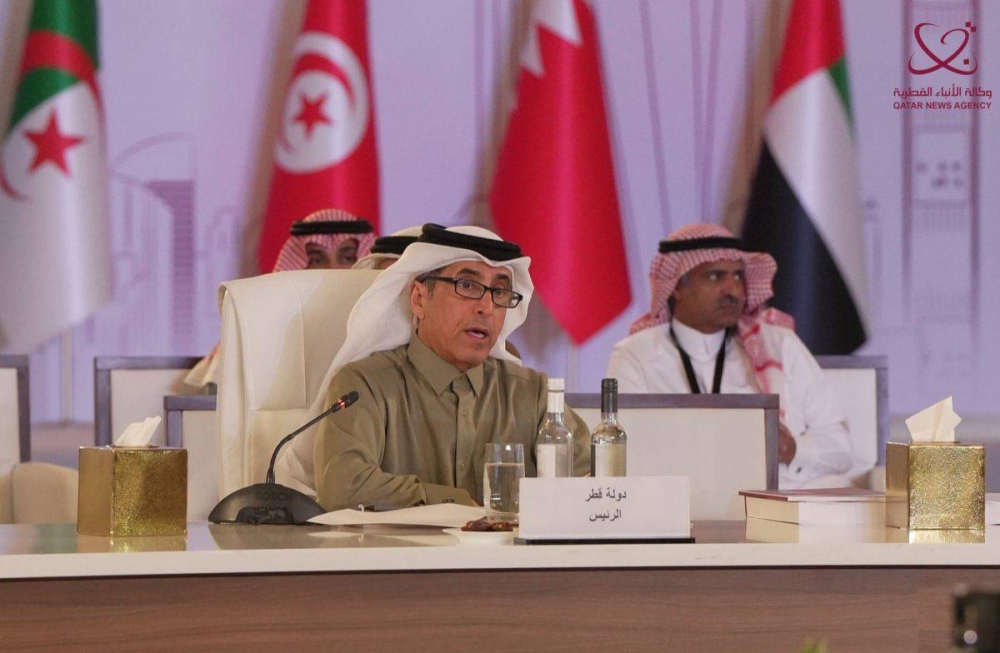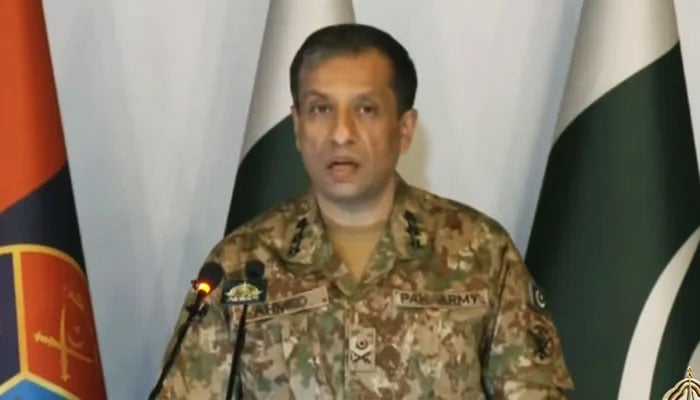casino games burning hot 40
2025-01-13 2025 European Cup casino games burning hot 40
News
The violent detentions of brawling foreign university students, including from Iran, in Tatarstan has led to a protest by Iran’s consul general to the Russian region. “Iranian citizens studying abroad have the right to respect and fair treatment,” Consul General Davud Mirzakhani said on November 23. “We will ensure that the rights of our students are fully protected." "The Russian police confuse the Iranian people with those of other nations," Mirzakhani added. "We will never allow anyone to treat our people abroad inhumanely and illegally." The comments came after a brawl broke out among foreign students at Kazan Federal University on the morning of November 22 as they stood in line for documentation needed to renew their student visas. Video of the incident can be seen here: According to the Russian news agency TASS, two students who instigated the brawl were detained. Iranian students involved in the incident were later released. However, Tatarstan’s Investigative Committee announced that it has opened a criminal case against one student who “used violence against a police officer.” It is not clear if the student being investigated was among those released. Local media reported that the brawl may have started when someone cut into a large line of students who had been waiting to register their documents for hours. Foreign students were reportedly transferred from their dormitories at the university to make room for attendees of the BRICS summit held in Kazan on October 22-24. Students affected by the move launched a petition to protest the decision at the time, and were reportedly among those attempting to get their documentation in order on November 22. Local media reported that the foreign students lining up for documents were there trying to extend their student visas needed to study in Kazan. Following the brawl, the university reportedly opened additional service stations for the foreign students to submit their documents. Ukraine has lost over 40 percent of the territory in Russia's Kursk region that it rapidly seized in a surprise incursion in August as Russian forces have mounted waves of counterassaults, a senior Ukrainian military source has said. The source, who is on Ukraine's General Staff, said Russia had deployed some 59,000 troops to the Kursk region since Kyiv's forces swept in and advanced swiftly, catching Moscow unprepared two and a half years into its full-scale invasion of Ukraine. "At most, we controlled about 1,376 square kilometers, now of course this territory is smaller. The enemy is increasing its counterattacks," the source said. "Now we control approximately 800 square kilometers. We will hold this territory for as long as is militarily appropriate." Local authorities have reported that at least 25 people, most of them Shi’a, were killed on November 22 in fresh sectarian violence in a tribal region of northwest Pakistan long known as a hotspot of Shi’ite-Sunni conflict. The deaths in the Kurram district of Khyber Pakhtunkhwa Province came just two days after dozens of people were killed when gunmen opened fire on a convoy of vehicles in the Sunni-majority district. Speaking to RFE/RL’s Radio Mashaal on November 23, Kurram district administrative head Javedullah Mehsud said the renewed clashes erupted unexpectedly and the authorities could not respond in sufficient numbers to control them. Other news agencies, citing local officials, reported that at least 32 people had died and 47 were wounded in the violence on November 22. Locals in the Bagan area of the district told Radio Mashaal that an angry mob of hundreds of Shi’a set several shops and homes on fire. Locals in the predominantly Sunni area claimed that some inhabitants were unaccounted for. Local Shi'ite leader Malik Dildar Hussain told Radio Mashaal that Shi’a have frequently come under attack in the area. On November 21, at least 50 people, including several women and children, were killed and more than 40 wounded when gunmen opened fire on November 21 on a police-escorted convoy of 200 vehicles carrying Shi'ite Muslims. The convoy was traveling from the provincial capital, Peshawar, to Parachinar, the capital city of the Kurram district. The threat of additional violence led local authorities to impose a curfew on November 22 and to suspend mobile telecommunications services in the remote mountainous district. Local leaders told RFE/RL that most of those killed in the renewed violence on November 22 were Shi'a, but at least four Sunnis were also among the dead. No group has taken responsibility for the attack. RFE/RL correspondents on the ground reported on November 22 that heavily armed people set fire to a military checkpoint in the area overnight. In Parachinar, witnesses reported seeing dozens of angry people armed with automatic weapons gathering amid reports that several other facilities of the Pakistani Army and the paramilitary Frontier Constabulary had been attacked and destroyed. RFE/RL correspondents reported hearing heavy gunfire. Jamshed Shirazi, a social activist in Parachinar, told RFE/RL that several government installations were damaged by the mob. "People are expressing their anger by attacking government offices," Shirazi said. Jalal Hussain Bangash, a local Shi'ite leader, voiced dismay at the violence during a Friday Prayers sermon on November 22 and said that Shi'a had nothing to do with the ensuing violence, RFE/RL correspondents on the ground reported. Hamid Hussain, a lawmaker from Kurram in the national parliament, was adamant that the violence was the work of provocateurs. "We are helpless. Neither Shi'a nor Sunnis are involved in this. This is [the result of] some other invisible forces who do not want to see peace in the area," Hussain told RFE/RL. Sectarian tensions have risen over the past several months in the Kurram district, which was formerly semiautonomous. Seventeen people were killed in an attack on a convoy on October 12, and there have been a handful of deadly attacks since then. Sunnis and Shi'a living in Kurram have clashed over land, forests, and other property as well as religion over the years, despite government and law enforcement efforts to build peace. Minority Shi'ite Muslims have long suffered discrimination and violence in Sunni-majority Pakistan. Russia has included the territories it occupies in Ukraine in its recent greenhouse gas inventory report to the United Nations, drawing protests from Ukrainian officials and activists at the COP29 climate summit in Baku. The move by Moscow comes as Russian President Vladimir Putin eyes potential peace deal negotiations with incoming U.S. President Donald Trump that could decide the fate of vast swaths of territory. "We see that Russia is using international platforms to legalize their actions, to legalize their occupation of our territory," Ukraine's Deputy Environmental Minister Olha Yukhymchuk told Reuters. She said Ukraine is in touch with officials from the United Nations Framework Convention on Climate Change (UNFCCC), the UN's main climate body, to ask it to resolve the dispute. Russia had already included emissions from Ukraine's Crimea region, annexed in 2014, in its last few reporting submissions to the UNFCCC. The Moscow-friendly Georgian Dream party, fresh off a contested victory in parliamentary elections last month that ignited calls for fresh polls and pro-EU demonstrations in Tbilisi, is preparing to hold its first parliamentary session on November 25. In comments to RFE/RL, Parliament Speaker Shalva Papuashvili said that foreign diplomats would not be invited to attend the opening session, saying it “should only be celebrated by the Georgian people." EU and other Western officials have expressed serious doubts about the October 26 elections in which Georgian Dream officially won 53.9 percent of the vote. Opposition leaders this week called on foreign diplomats not to legitimize the new parliament by attending the first session of parliament. Georgian President Salome Zurabishvili has refused to recognize the result validated by the country’s Central Election Committee (CEC), and protests demanding new elections continue to be held in the country’s capital. Protesters have alleged that there was widespread fraud during the campaign and vote, and that Russia heavily influenced the outcome favoring Georgian Dream, which has been in power since 2012. In recent days, Georgian police have shut down the demonstrations, including through the use of violence on November 19. Video footage by RFE/RL correspondents in Tbilisi showed police dragging people to the ground, including women, and beating them before taking them away. The same day, Zurabishvili filed a lawsuit in the Constitutional Court "requesting annulment of the election results as unconstitutional.” The first item on the agenda for the opening session, which will be attended by the head of the CEC, will be recognizing the authority of all 150 parliament members. Georgia has been a candidate for EU membership since last year, but a "foreign influence" law and anti-LGBT measures enacted under Georgian Dream’s leadership have stalled that effort. The United States in July announced that it would pause more than $95 million in assistance to the Georgian government, warning it that it was backsliding on democracy. U.S. President-elect Donald Trump is considering tapping Richard Grenell, his former intelligence chief, to be a special envoy for the Russia-Ukraine conflict, according to four sources familiar with the transition plans. Grenell, who served as Trump's ambassador to Germany, as special envoy to Serbia-Kosovo talks, and was acting director of national intelligence during Trump's 2017-2021 term, would play a key role in Trump's efforts to halt the war if he is ultimately selected for the post. While there is currently no special envoy dedicated solely to resolving the Russia-Ukraine conflict, Trump is considering creating the role, according to the four sources. Grenell has advocated for the creation of "autonomous zones" as a means of settling the conflict. He also suggested he would not be in favor of Ukraine joining the North Atlantic Treaty Organization in the immediate future. EU Parliament President Roberta Metsola supports the use of long-range missiles by Ukraine in its defense against Russia's full-scale invasion and said Germany should quickly deliver its long-range Taurus system to the embattled country. Metsola, in an interview published on November 23 by the Funke Mediengruppe newspapers, said "yes," when asked whether countries providing long-range missiles to Ukraine should allow it to use them against targets in Russia -- and whether Germany should deliver its Taurus weapons system to Ukraine. Chancellor Olaf Scholz, a Social Democrat, has been staunchly opposed to sending Taurus missiles to Ukraine. His coalition partners, the pro-business Free Democrats and the Greens, however, are in favor of sending Kyiv the missiles. Austria has dropped its long-standing veto to Bulgaria and Romania joining the passport free Schengen zone, opening the door to their accession next year. The breakthrough development was announced on November 22 by the Hungarian presidency of the EU Council, which hosted a meeting in Budapest with the interior ministers of Romania, Bulgaria, and Austria. The EU will meet with the two candidate countries to finalize a joint security package at a meeting on December 11-12. The two countries could become Schengen members in January. “Bulgaria and Romania belong fully to the Schengen area. I welcome the positive outcome of informal discussions in Budapest today.” Ursula von der Leyen, the president of the European Commission, said in a tweet following the announcement. The addition of Bulgaria and Romania will expand the Schengen zone to 28 states, including 24 EU members. Ireland and Cyprus will remain the only EU members not part of the Schengen Area. Bulgarians and Romanians currently are not permitted to travel freely into other Schengen member states over land borders. Early this year, they received the right to travel freely by air and sea in the first concession by Vienna. After the meeting in Budapest, Hungarian Interior Minister Sandor Pinter told media that the agreement to be signed next month includes the establishment of a special contingent of at least 100 border police officers on the Turkish-Bulgarian border. Hungary will contribute to the full deployment of the officers and provide the necessary technical equipment to ensure effective protection of the border, he said. Pinter expressed confidence that the issue could be resolved by December 31. EU Commissioner for Home Affairs Ylva Johansson said a January accession date is a realistic goal. Yekaterina Neroznikova, a journalist and member of the Marem human rights group, is facing administrative charges in Russia for her alleged involvement with an "undesirable organization." The charges stem from Neroznikova's participation in an interview with RFE/RL earlier this year, where she discussed the high-profile abduction of Seda Suleimanova, a native of Chechnya. The administrative protocol was filed with the Zhukovsky City Court in Moscow Oblast on November 15, with a hearing scheduled for November 26. Neroznikova, who left Russia following the full-scale invasion of Ukraine, disclosed the development to the OVD-Info human rights group, a prominent watchdog monitoring political persecution in Russia. The case against Neroznikova is linked to her April 2024 appearance on RFE/RL’s program Human Rights Are A Right. During the program, she discussed the abduction of Suleimanova, who was forcibly taken from St. Petersburg in August 2023 by local police and Chechen operatives. Suleimanova, who fled Chechnya in 2022 because of pressure being put on her to agree to a forced marriage, has been missing since September last year. The charges against Neroznikova are seen as part of Russia’s broader crackdown on dissent and press freedom. Suleimanova's case has prompted global protests and solidarity campaigns highlighting ongoing human rights concerns in Chechnya and Russia in general. According to Neroznikova, a man identifying himself as an officer of the Interior Ministry contacted her relatives last week before reaching out to her directly. He informed her of the administrative charges, citing her commentary on RFE/RL as the reason. RFE/RL's Russian Service and its multiple projects in the Russian language were designated as "undesirable organizations" in Russia in February 2024, making any association with them punishable under Russian law. Participation in the activities of an “undesirable organization” in Russia can result in fines of up to 15,000 rubles for individuals. Repeat offenses within a year can escalate to criminal charges, carrying penalties of up to four years in prison. Suleimanova's case has drawn international attention. In 2022, she fled her family in Chechnya to avoid an arranged marriage and persistent conflicts. In August 2023, she was abducted in St. Petersburg by individuals including local police and plainclothes Chechen security officers. She was taken to her family in Chechnya, and no information about her whereabouts has been available since September 2023. An investigation into Suleimanova’s disappearance was launched in March 2024 following thousands of public appeals. Despite the family's claims that she left home again in February, observers remain skeptical, citing conflicting statements made by her relatives. Russian President Vladimir Putin said the country's new intermediate-range ballistic missile, a nuclear-capable weapon, will continue to be tested, including in combat conditions, as Moscow struck several Ukrainian regions with other, less powerful weapons. "We will continue these tests, including in combat conditions, depending on the situation and the nature of the security threats that are created for Russia," Putin said on November 22 at a meeting with Defense Ministry officials and military-industrial complex officials. The Kremlin leader also called for serial production of the large missile to begin. Russia launched the so-called Oreshnik ballistic missile against Ukraine on November 21 in a strike targeting the city of Dnipro. Putin said at the time it was part of Moscow's response to Ukrainian attacks on Russian soil with U.S.-supplied ATACMS and British-supplied Storm Shadow missiles. The use of the Oreshnik "is first and foremost a messaging and saber rattling kind of weapon. This is the sort of delivery system that's not cheap. It's not a battlefield sort of weapon," Tom Karako, a missile defense expert at the Center for Strategic and International Studies in Washington, told RFE/RL. Putin added on November 22 that the Oreshnik is new and not an upgrade of previous Soviet-designed weaponry. The United States said the new missile is “experimental” and based on Russia’s RS-26 Rubezh intercontinental ballistic missile (ICBM). Ukraine initially accused Russia of having used an ICBM in the Dnipro attack. An ICBM has never been used in a war. Strategic Weapons Russia has been striking Ukraine with Iskanders, ground-launched, short-range ballistic missiles, and Kinzhals, air-launched, intermediate-range ballistic missiles, as well as various cruise missiles. Russia probably only has several units of the Oreshnik in stock, a U.S. official told media following the November 21 strike. Ukraine's military intelligence put the figure at up to 10 units. If Russia were to move forward with serial production of the Oreshnik, it would be for its nuclear force posture and not for use in a conventional war like the one with Ukraine, Karako said. "This is not an alternative to a cruise missile. It's probably designed for strategic weapons," he said. Zelenskiy's Response In his November 21 address to the nation announcing the use of the Oreshnik, Putin said that the missile traveled at a speed of Mach 10, or 2.5-3 kilometers per second, claiming that "there are currently no ways of counteracting this weapon." Meanwhile, Ukrainian President Volodymyr Zelenskiy said on November 22 that Ukraine was working on developing new types of air defenses to counter "new risks," a reference to missiles like the Oreshnik. In his nightly video address, Zelenskiy said testing a new weapon for the purposes of terror in another country was an "international crime" and called for a worldwide "serious response" to keep Russia from expanding the war. "When someone starts using other countries not only for terror, but also for testing their new missiles through acts of terror, then this is clearly an international crime." A lack of air defenses has been one of Ukraine's major weak spots in the 33-month war with Ukraine. Zelenskiy has called on the West to deliver more air defense systems since the first days of the invasion. He had also called on the West to ease restrictions preventing Ukraine from striking inside Russia with powerful long-range weapons. Zelenskiy said the deep strikes were necessary to target airfields critical for Russia's daily aerial attacks. The United States and the United Kingdom reportedly lifted the restrictions on November 17 with Ukraine using their long-range weapons -- ATACMS and Storm Shadow respectively -- to hit targets in Russia's regions of Belgorod and Kursk. Putin launched the Oreshnik into Ukraine to warn the West against arming Ukraine. Parliament Session Canceled Russia did not use the Oreshnik to strike Ukraine during another deadly air attack on November 22. Two people were killed and 12 wounded in Russian strikes on Sumy, Artem Kobzar, the mayor of the northeastern Ukrainian city, reported in a video statement on Telegram. The Ukrainian Air Force said Russian drone attacks were under way in four regions -- Sumy, Kyiv, Chernihiv, and Zhytomyr. In the capital, which has been on edge for several days amid intense Russian attacks on Ukraine, lawmakers were advised to avoid the government district on November 22 and parliament canceled a scheduled session due to warnings of a potential missile strike. "We were informed about the risk of a missile strike on the Verkhovna Rada in Kyiv in the coming days. Putin has significantly raised the stakes . Tomorrow's parliamentary session is canceled," lawmaker Taras Batenko said. Oleksiy Honcharenko, another lawmaker, said on Telegram that the next session was now planned for December, although parliament leaders have not officially commented on the warnings. Zelenskiy's office assured the public that the presidential administration would continue operating "as usual" on November 22. The Russian Supreme Court has declared the international organization Post-Russia Free Nations Forum a terrorist group, the latest move in the Kremlin's clampdown on any sign of dissent. The organization, founded in Poland in 2022, has been accused of promoting separatism and aiming to disband the Russian Federation into independent states under foreign influence. Russia is a multiethnic state comprised of more than 80 regions, many of which have large indigenous populations, such as Chechnya and Tatarstan. Since coming to power in 1999, Russian President Vladimir Putin has centralized authority, curtailing the autonomy that some ethnic regions enjoyed. Russia's invasion of Ukraine and its attempt to wipe out Ukrainian identity has shone a bright light on the Kremlin's historical mistreatment of its own indigenous populations and triggered a "decolonization" movement that seeks to give more prominence to ethnic groups within Russian historical and cultural studies. The case against the Post-Russia Free Nations Forum was launched in late October by the Prosecutor-General’s Office, which cited its activities as a threat to Russia’s territorial integrity and national security. In its statement, the Prosecutor General’s Office alleged that the forum operates through 172 regional and national entities, including the Baltic Republican Party, the Ingria Movement, the Congress of Peoples of the North Caucasus, the Free Yakutia Foundation, and the Far Eastern Confederation. The office claims these groups are directed by exiled leaders of separatist movements. “These leaders aim to divide the Russian Federation into independent states that would fall under the influence of hostile foreign countries,” the Prosecutor-General’s Office stated on its official website. The Post-Russia Free Nations Forum is registered in Poland and describes itself as a civic movement advocating for greater regional autonomy within Russia, with some members supporting full independence for regions. On its website and social media platforms, the organization also uses variations of its name, such as the Post-Russia Free States Forum. Ukrainian businessman Oleh Mahaletskiy positions himself as one of the founders of the group and is believed to be a major sponsor. The group’s activities have included discussions on decentralization and independence, with notable speakers such as the noted Tatar activist Nafis Kashapov, Bashkir activist Ruslan Gabbasov, Russian opposition politician Ilya Ponomaryov, U.S. political analyst Janusz Bugajski, and others. Following the November 22 terrorist designation by the Supreme Court, all activities of the Post-Russia Free Nations Forum are now banned in Russia. Membership or association with the group is subject to criminal prosecution under Russian anti-terrorism laws. Critics of the ruling argue that the designation reflects a broader crackdown on dissent and regional autonomy movements in Russia. They note that the Forum primarily operates abroad and online, raising questions about the ruling’s effectiveness outside Russian borders. The Forum has not yet responded to the court’s decision. Observers suggest that this ruling may escalate tensions between Russia and countries hosting members of the organization, particularly Poland, where it is registered. The authoritarian ruler of Belarus, Alyaksandr Lukashenka, has threatened to shut down the Internet in the event of mass protests during or after the upcoming presidential election, after the previous vote in 2020 erupted in unprecedented unrest amid opposition allegations it was rigged. Speaking to students at Minsk State Linguistic University on November 22, Lukashenka defended past Internet restrictions and warned of future measures to throttle dissent. "If this happens again, we will shut it down entirely. Do you think I will sit idly and pray you don't send a message when the fate of the country is at stake?" state news agency BelTA quoted him as saying. Lukashenka admitted that Internet disruptions during the 2020 protests were conducted with his approval, citing the need to "protect the country." Following the August 9, 2020, election, which many Western governments have said was not free and fair, Internet access across Belarus was disrupted for several days and intermittently blocked. The disputed election that extended Lukashenka's decades of rule -- he has held power since 1994 -- for another term was widely condemned as fraudulent by the United States, the European Union, and other international actors. The protests, which demanded Lukashenka’s resignation, were met with mass arrests, alleged torture, and violent crackdowns that left several people dead. Many opposition leaders remain imprisoned or in exile, while Lukashenka refuses dialogue with his critics. The next presidential election in Belarus is scheduled for January 26. Alsu Kurmasheva, a journalist for RFE/RL's Tatar-Bashkir Service, was honored with the International Press Freedom Award by the Committee to Protect Journalists (CPJ) in a ceremony held in New York on November 21. Kurmasheva, who was recently released from detention in Russia after spending 288 days in custody, thanked the CPJ for its efforts toward gaining her freedom. "Journalism is not a crime," she said , noting that more than 20 journalists are currently imprisoned in Russia. Kurmasheva added that she was dedicating the award to her colleagues still imprisoned , including RFE/RL journalists Ihar Losik and Andrey Kuznechyk in Belarus, Vladislav Yesypenko in Crimea, and Farid Mehralizada in Azerbaijan. "My colleagues are not just statistics; like me they are real human beings with families who miss and love them. There are dozens of other journalists in Russian prisons. They should be released at once," Kurmasheva stressed . Other recipients of the award this year included Palestinian journalist Shorouq al-Aila, Guatemalan journalist Kimi de Leon, and Nigerien investigative journalist Samira Sabou, all recognized for their courage in the face of persecution. Detained by authorities in June 2023 as she was visiting relatives in the central Russian city of Kazan, Kurmasheva was initially charged with not declaring her U.S. passport. She was released but barred from leaving the country. That October, however, she was arrested, jailed, and charged with being an undeclared "foreign agent" -- under a draconian law targeting journalists, civil society activists, and others. She was later hit with an additional charge: distributing what the government claims is false information about the Russian military, a charge stemming from her work editing a book about Russians opposed to the ongoing invasion of Ukraine. RFE/RL, as well as the U.S. government, called the charges absurd. The prisoner exchange that came to fruition on August 1 included 24 people in all -- including Kurmasheva, Wall Street Journal reporter Evan Gerskovich, and Russian political activist Vladimir Kara-Murza -- in a complex, seven-country deal. Religious tensions are on the rise in northwestern Pakistan following a deadly attack on a police-escorted convoy of Shi'ite Muslims that threatened to reignite sectarian violence in a strife-plagued region of Khyber Pakhtunkhwa Province. In the aftermath of the attack on the 200-vehicle convoy traveling from Peshawar to Parachinar, the capital city of the Kurram district, authorities on November 22 imposed a curfew and suspended mobile service in the remote mountainous district. RFE/RL correspondents on the ground reported on November 22 that heavily armed people set fire to a military checkpoint in the area overnight. In Parachinar, dozens of angry people carrying automatic weapons were gathering, amid reports that several other facilities of the Pakistani Army and the paramilitary Frontier Constabulary were attacked and destroyed, with RFE/RL correspondents reporting sounds of constant heavy gunfire. Jamshed Shirazi, a social activist in Parachinar, told RFE/RL that several government installations had been damaged by the angry protesters. "People are expressing their anger by attacking the government offices," Shirazi said. But Jalal Hussain Bangash, a local Shi'ite leader, voiced dismay at the violence during a Friday Prayer sermon on November 22 and said that Shi'a had nothing to do with the ensuing violence, RFE/RL correspondents on the ground report . Hamid Hussain, a lawmaker from Kurram in the national parliament, was adamant that the violence was the work of provocateurs. "We are helpless. Neither Shi'a nor Sunnis are involved in this. This is some other invisible forces who do not want to see peace in the area," Hussain told RFE/RL. At least 48 people, including several women and children, were killed and more than 40 wounded when gunmen opened fire on November 21 on the convoy of vehicles in the Kurram district of Khyber-Pakhtunkhwa province near the Afghan border. Local leaders told RFE/RL that most of those killed were Shi'a, but at least four Sunnis were also among the dead. No one has taken responsibility for the attack, the latest in a series of deadly confrontations in Kurram, long known as a hotspot of Shi'ite-Sunni sectarian conflict. Local tribal leader Malik Dildar Hussain told RFE/RL that there were about 700 people in the convoy. Tensions in Kurram began to heat up in the past several months, where clashes again erupted between Sunni and Shi'ite Muslim tribes in the area, which was formerly semiautonomous. On October 12, 17 people were killed in an attack on a convoy, and there have been a handful of deadly attacks since then. Sunnis and Shi'a live together in Kurram and have clashed violently over land, forests, and other property as well as religion over the years, despite government and law enforcement efforts to build peace. Minority Shi'ite Muslims have long suffered discrimination and violence in Sunni-majority Pakistan. Moscow launched another deadly attack on Ukraine on November 22, a day after firing what it said was a new intermediate-range missile that the Kremlin boasted was a " warning " for the West, after Kyiv reportedly obtained permission from President Joe Biden to strike into Russia with U.S. long-range missiles. Two people were killed and 12 wounded in Russian strikes on Sumy, Artem Kobzar, the mayor of the northeastern Ukrainian city, reported in a video statement on Telegram. Ukraine's air force said Russian drone attacks were under way in four regions -- Sumy, Kyiv, Chernihiv, and Zhytomyr. In the capital, which has been on edge for several days amid intense Russian attacks on Ukraine, lawmakers were advised to avoid the government district on November 22 and parliament canceled a scheduled session due to warnings of a potential missile strike. "We were informed about the risk of a missile strike on the Verkhovna Rada in Kyiv in the coming days. Putin has significantly raised the stakes . Tomorrow's parliamentary session is canceled," lawmaker Taras Batenko said, while lawmaker Oleksiy Honcharenko said on Telegram that the next session was now planned for December, although parliament leaders have not officially commented on the warnings. The office of President Volodymyr Zelenskiy assured the public that it would continue operating "as usual" on November 22. On November 20, the U.S. Embassy in Ukraine warned of a significant Russian air attack, prompting the temporary closure of its operations. The embassies of Spain, Italy, and Greece also suspended services for the day. On November 21, Russian President Vladimir Putin announced the "successful combat testing" of a new Oreshnik (Hazel Tree) intermediate-range ballistic missile amid the Kremlin's full-scale invasion of Ukraine. Putin claimed the missile was used in a strike on Ukraine's eastern city of Dnipro, asserting it was a response to NATO’s "aggressive actions" and Ukraine’s use of Western-supplied missiles to target Russian territory. On November 22, Kremlin spokesman Dmitry Peskov reiterated that the test was a message to the West that Moscow will respond harshly to any "reckless" Western moves in support of Ukraine. "The main message is that the reckless decisions and actions of Western countries that produce missiles, supply them to Ukraine, and subsequently participate in strikes on Russian territory cannot remain without a reaction from the Russian side," Peskov told reporters. "The Russian side has clearly demonstrated its capabilities, and the contours of further retaliatory actions in the event that our concerns are not taken into account have been quite clearly outlined," he said. Ukraine's military intelligence said on November 22 that Russia may have up to 10 units of the new missile. Hungarian Prime Minister Viktor Orban has invited his Israeli counterpart to visit Hungary, defying an arrest warrant for issued by the International Criminal Court (ICC) for Benjamin Netanyahu that other European states say they will honor. Orban, speaking during his regular weekly interview with Hungarian state radio, said on November 22 that the ICC's decision a day earlier to issue the warrant accusing Netanyahu of "crimes against humanity and war crimes" committed during the war in Gaza was "outrageously brazen" and "cynical." The ICC issued similar arrest warrants for former Israeli Defense Minister Yoav Gallant and a Hamas military leader who Israel claims to have killed but whose death the U.S.- and EU-designated terrorist group has not officially acknowledged. The ICC said Netanyahu and Gallant were suspected of using "starvation as a method of warfare" by restricting humanitarian aid while targeting civilians in Israel's war in Gaza -- charges Israeli officials deny. Orban said the ICC move against Netanyahu "intervenes in an ongoing conflict...dressed up as a legal decision, but in fact for political purposes." "Later today, I will invite the Israeli prime minister, Mr. Netanyahu, to visit Hungary, where I will guarantee him, if he comes, that the judgment of the ICC will have no effect in Hungary, and that we will not follow its terms," he added. "There is no choice here, we have to defy this decision," Orban said. Shortly after the ICC decision was announced, the European Union's top diplomat, Josep Borrell, said ICC decisions "are binding on all states party to the Rome Statute, which includes all EU member states." However, the EU's most powerful members, Germany and France, on November 22 reacted with restraint to the ICC warrants. A spokesman said the German government will refrain from any moves until a visit to Germany by Netanyahu is planned. "I find it hard to imagine that we would make arrests on this basis," Steffen Hebestreit said on November 22, adding that legal questions had to be clarified about the warrant. In Paris, Foreign Ministry spokesman Christophe Lemoine only said that France acknowledged the ICC's move and voiced its support for the ICC's independence. "France takes note of this decision. True to its long-standing commitment to supporting international justice, it reiterates its attachment to the independent work of the court, in accordance with the Rome Statute," Lemoine said. Hungary, a NATO and European Union member state, has signed and ratified the 1999 document. However, it has not published the statute's associated convention and therefore argues that it is not bound to comply with ICC decisions. Netanyahu on November 22 thanked Orban for his show of "moral clarity." "Faced with the shameful weakness of those who stood by the outrageous decision against the right of the State of Israel to defend itself, Hungary" is "standing by the side of justice and truth," Netanyahu said in a statement. A right-wing nationalist in power since 2010, Orban has maintained close relations with Russian President Vladimir Putin and has voiced opposition to the EU's sanctions imposed on Moscow after its unprovoked invasion of Ukraine in February 2022. Orban has previously said that Hungary would not arrest Putin either, despite the ICC arrest warrant issued on the Russian leader's name for war crimes for his role in deporting Ukrainian children. Furthermore, he flew to Moscow in July immediately after Hungary took over the EU's rotating six-month presidency to meet with Putin, in defiance of the fellow members of the bloc. Soltan Achilova, a veteran journalist and former RFE/RL correspondent in Turkmenistan, was forcibly hospitalized in Ashgabat on November 20 in what appears to be a move by the government to prevent her from flying to Geneva to receive an international award. According to the Chronicle of Turkmenistan website, four men in medical gowns arrived at the 75-year-old's apartment early that morning, claiming she was suspected of carrying an infectious disease and needed an "urgent" examination. Achilova, who showed no signs of illness, was forcibly taken to the Center for the Prevention and Treatment of Infectious Diseases in Ashgabat's Choganly district. Her family was not allowed to accompany her and her apartment keys were confiscated. One family member said one of the men told Achilova, "Why do you need keys in the afterlife?" Doctors have not disclosed when she will be released. Turkmenistan is consistently ranked by media watchdogs, such as Reporters Without Borders (RSF), among the worst countries in the world for press freedom. Independent media are nonexistent in the authoritarian Central Asian state, where journalism "amounts only to praise for the regime," according to RSF. The government continues a relentless clampdown on dissent -- with critics being harassed, beaten, tortured, jailed, and even killed. Many others have been forced abroad into exile. Human rights groups, including the Turkmen Initiative for Human Rights and the International Partnership for Human Rights, immediately condemned Achilova's forced detention, calling it a stark escalation in Turkmenistan's crackdown on free speech. They demanded her immediate release and an end to the persecution of journalists. Achilova, the only journalist in Turkmenistan who openly criticizes the authoritarian government, has faced repeated harassment, threats, and attacks. In November 2023, border guards at the Ashgabat airport destroyed her passport to prevent her from traveling to Switzerland, where she was scheduled to attend the Martin Ennals Award human rights ceremony. Achilova has faced verbal threats and physical attacks, which the journalist and her supporters describe as government retaliation for her work. Many of her relatives have also been threatened. Ashgabat doesn't tolerate any dissent, and the government has stifled independent media, forced opposition activists into exile, and blocked access to all major social media and messaging apps to virtually cut its citizens off from the rest of the world. The Teatro San Carlo in Naples, Italy, has canceled appearances by opera singer Ildar Abdrazakov over his support for Russian President Vladimir Putin. Pina Picierno, a vice president in the European Parliament, announced the cancellation on the social network X on November 21, emphasizing that Abdrazakov's ties to the Kremlin made him unfit for a leading cultural institution in Europe. She had led a campaign to keep Abdrazakov from performing in productions of Verdi’s Don Carlos and Attila operas. The Anti-Corruption Foundation of Aleksei Navalny had previously named Abdrazakov, who comes from the Bashkortostan region, as a regime supporter, citing his performances at events tied to Russian Defense Minister Sergei Shoigu and a lucrative appearance on Red Square in 2022. This marks the latest in a series of international cancellations for Abdrazakov, whose scheduled performances in the United States and Germany were also recently cancelled. To read the original story by RFE/RL's Idel.Realities, click here . Iran has vowed to respond to a resolution adopted by the United Nations' nuclear watchdog that criticizes the Islamic republic for what it says is poor cooperation by installing a number of "new and advanced" centrifuges. The resolution, which comes shortly after the return of International Atomic Energy Agency (IAEA) chief Rafael Grossi from a trip to Iran , reportedly says it is "essential and urgent" for Tehran to "act to fulfill its legal obligations." A joint statement by Iran's Foreign Ministry and Atomic Energy Organization said on November 22 that the country's nuclear chief, Mohammad Eslami, "issued an order to take effective measures, including launching a significant series of new and advanced centrifuges of various types." The Iranian announcement came after the IAEA's board on November 21 issued a second resolution condemning Tehran's cooperation with the agency after a similar warning in June. Some analysts say the resolution may be a step toward making a political decision to trigger a "snapback" of UN Security Council (UNSC) sanctions against Iran. The "snapback" mechanism is outlined in UNSC Resolution 2231, which enshrined a 2015 nuclear deal between Iran and world powers. However, the option to reimpose the sanctions expires in October 2025. The IAEA resolution, put forward by France, Germany, and Britain and supported by the United States, comes at a critical time as President-elect Donald Trump prepares to return at the White House in January. Trump during his first term embarked on a "maximum pressure" campaign of intensified sanctions on Iran and unilaterally withdrew the United States in 2018 from a landmark 2015 agreement that lifted some sanctions on Iran in exchange of curbs to its nuclear program, which the West suspects is aimed at obtaining a nuclear weapon. Iran claims its nuclear program is peaceful. The resolution passed on November 21 also urged Iran to cooperate with an investigation launched after uranium particles were found at two sites that Iranian authorities had not declared as nuclear locations. Nineteen of the 35 members of the IAEA board voted in favor of the resolution. Russia, China, and Burkina Faso opposed it, 12 members abstained, while one did not vote, diplomats who spoke on condition of anonymity told the AP. It also calls on the IAEA to come up with a "comprehensive report" on Iran's nuclear activities by spring. During Grossi's visit, Iran agreed with an IAEA demand to limit its stock of uranium enriched at 60 percent purity, which is still under the 90 percent threshold needed for a nuclear weapon, but it is much higher than the 3.67 percent limit it agreed to in the 2015 deal. However, Iranian Foreign Minister Abbas Araqchi, who was Tehran's chief negotiator for the 2015 agreement, warned that Iran would not negotiate "under pressure." Tehran has responded to previous similar resolutions by moves such as removing IAEA cameras and monitoring equipment from several nuclear sites, and increasing uranium enrichment to 60 percent purity at a second site, the Fordow plant. Two people were killed and 12 wounded in Russian strikes on Sumy early on November 22, Artem Kobzar, the mayor of the northeastern Ukrainian city, reported in a video statement on Telegram. "Several powerful explosions were heard in Sumy," he said in the video, adding that rescue teams, police, and ambulances were working at the site of the explosions. Kobzar urged residents to take shelter, saying that air defenses were still engaging incoming drones in the morning. Ukraine's air force said Russian drone attacks were under way in four regions -- Sumy, Kyiv, Chernihiv, and Zhytomyr. To read the original story by RFE/RL's Ukrainian Service, click here . A senior North Korean general has been wounded in Russia’s Kursk region, The Wall Street Journal reported, citing Western officials. More than 10,000 North Korean troops are supporting Russian forces in Kursk. Russian President Vladimir Putin is hoping to recover the swath of the Kursk region that Ukraine seized in August before President Donald Trump takes office early next year. The United States this week gave Ukraine the green light to use its long-range ATACMS missiles to strike Russian assets in Kursk and said North Korean troops would be fair game. It is unclear how the North Korean general was wounded, the WSJ reported . The United States has imposed sanctions on Gazprombank, Russia’s third-largest lender, and dozens of other financial institutions as President Joe Biden seeks to further curtail the Kremlin’s ability to finance its war in Ukraine before he leaves office in two months. Gazprombank, which plays an important role in facilitating Russian energy exports, was the only remaining large Russian lender not under U.S. sanctions. Washington and Brussels had avoided sanctioning Gazprombank amid concern over possible energy export interruptions. Along with Gazprombank, the United States also announced sanctions on more than 50 other Russian banks conducting international operations, more than 40 Russian securities registrars and 15 Russian finance officials. The United States also warned financial institutions against joining Russia’s version of the international messaging system for banks known as SWIFT. Russia is seeking to attract international banks to its messaging platform to get around U.S. financial sanctions. “Today’s action reaffirms the U.S. commitment to curtail Russia’s ability to use the international financial system to conduct its war against Ukraine and disrupts Russia’s attempts to make cross-border payments for dual-use goods and military materiel,” State Department spokesman Matthew Miller said in a November 21 statement. Ukraine backers had been calling on the Biden administration for months to tighten sanctions on Russia’s banking sector, saying the Kremlin was finding ways around existing sanctions to pay for technology imports and other dual-use items. In addition to facilitating energy payments, Gazprombank had been acting as a conduit for the purchase of military goods. The Kremlin also uses Gazprombank to pay Russian soldiers and compensate families for war deaths. “I am grateful to @POTUS and his administration for today’s strong package of financial and banking sanctions targeting Russia’s economy and war chest,” Ukrainian President Volodymyr Zelenskiy said in a tweet . Eddie Fishman, a former State Department official and sanctions expert, called the latest announcement a “strong step” toward closing loopholes around Russia’s energy sector, which generates about half of federal budget revenues. Biden will leave office on January 20 to make way for President-elect Donald Trump, who has promised to end the war in Ukraine by getting Zelenskiy and Russian President Vladimir Putin to sit down at the negotiating table, something that experts say will be harder done than said. The financial sanctions come at a critical time for Russia’s economy as Putin’s record spending on the war effort drives up inflation and interest rates. The Russian Central Bank last month raised interest rates to 21 percent, the highest in decades, and could continue to ratchet them up with no end in sight to the war. Russian President Vladimir Putin said his military fired a new intermediate-range missile into Ukraine following accusations by Kyiv that it was an intercontinental ballistic missile (ICBM). In a November 21 video statement to the nation, Putin said the use of the new weapon was a response to the United States and the United Kingdom giving permission to Kyiv to fire their long-range missiles into Russia. "In combat conditions, one of the newest Russian medium-range missile systems was tested," Putin said, adding that it was a hypersonic, ballistic missile capable of carrying a nuclear warhead. Earlier in the day, Kyiv accused Russia of striking Ukraine with what it said appeared to be an ICBM. The new weapon was part of a larger missile attack on Dnipropetrovsk, home to important military-industrial plants. ICBMs, which are designed to deliver long-distance nuclear strikes, have never been used in war before. "On the morning of November 21, 2024...Russian troops attacked the city of Dnipro (facilities and critical infrastructure) with missiles of various types. In particular, an intercontinental ballistic missile was launched from the Astrakhan region of the Russian Federation," the Ukrainian Air Force said in its statement on Telegram. Ukrainian President Volodymyr Zelenskiy said on Telegram later that the new Russian weapon had "all characteristics -- speed, altitude -- [of an] intercontinental ballistic missile." Pentagon spokeswoman Sabrina Singh said Russia struck Ukraine with an "experimental" intermediate-range ballistic missile that was based on its RS-26 Rubezh ICBM. She said Russia had informed the United States it would be launching the experimental missile shortly beforehand through "nuclear risk reduction channels." She said the new weapon had a smaller warhead that some other missiles Russia has launched into Ukraine. A U.S. official who asked not to be identified told media that Putin was seeking to intimidate Ukraine but added that Moscow only had a few of the "experimental" missiles. The Russian attack comes just days after reports that Ukraine used British-supplied Storm Shadow missiles and U.S.-made ATACMS systems to strike military targets deeper inside Russia following the long-sought approval by President Joe Biden. The RS-26 Rubezh is a solid-fueled, road-mobile ICBM currently in development that has been tested with heavier payloads at intermediate ranges. Military analysts said ICBM missiles can be classified as intermediate-range weapons when their payloads are increased and ranges decreased. The main target of the Russian attack was the southeastern region of Dnipropetrovsk, Ukraine's most important industrial region, and its capital, the city of Dnipro. Ukraine's air force said that besides the ICBM, Russian aircraft also launched a hypersonic Kh-47M2 Kinzhal missile and seven subsonic Kh-101 cruise missiles. Ukrainian air defenses shot down six Kh-101 missiles, the air force reported. Dnipropetrovsk Governor Serhiy Lysak said his region bore the brunt of the Russian attack. "Since early in the morning, the aggressor massively attacked our region," Lysak reported on Telegram, adding that preliminary information showed that an industrial facility was damaged in the regional capital, Dnipro, where two fires were started by the attack. Explosions were also reported in Kremenchuk, in the central Poltava region. Moscow's use of a large number of sophisticated missiles as opposed to the usual drone attacks appears to be in response to Ukraine's gaining approval to use some Western-donated long-range missile systems to strike deeper into Russia. On November 20, Russian military bloggers and a source cited by Reuters reported that Ukraine had fired up to 12 Franco-British Storm Shadow missiles into Russia's Kursk region, part of which has been under Ukrainian control following a surprise incursion by Ukrainian troops in August. A spokesman for British Prime Minister Keir Starmer declined to confirm whether the missiles had been used. Previously, London had given permission to use the Storm Shadows, which have a 250-kilometer range, within Ukraine's territory. Earlier this week, Ukraine reportedly used ATACMS to strike a military facility in Russia's Bryansk region after Biden was reported as giving his OK. The White House has not officially confirmed the approval and Ukraine hasn't directly acknowledged the use of ATACMS on Russian targets. Russia has long warned that Ukraine's use Western-supplied long-range weapons to strike inside its territory would mark a serious escalation of the conflict. On November 21, Moscow said a new U.S. missile defence base in the Polish town of Redzikowo near the Baltic coast, which was opened on November 13 as part of a broader NATO missile shield, will lead to an increase in the overall level of nuclear danger. "This is another frankly provocative step in a series of deeply destabilising actions by the Americans and their allies in the North Atlantic alliance in the strategic sphere," Russian Foreign Ministry spokeswoman Maria Zakharova said. "This leads to undermining strategic stability, increasing strategic risks and, as a result, to an increase in the overall level of nuclear danger," Zakharova said. Poland rejected the claim, saying there were no nuclear missiles at the base. "It is a base that serves the purpose of defense, not attack," Foreign Ministry spokesman Pawel Wronski said on November 21. At least 38 people were killed and more than 40 wounded after gunmen opened fire on a convoy of cars carrying Shi'ite Muslims in northwest Pakistan as religious tension in the region rises. Three women and a child were among those killed in the November 21 attack, police told RFE/RL's Radio Mashaal. The convoy of 200 cars was heading from Peshawar to Parachinar in Khyber Pakhtunkhwa Province near the border with Afghanistan when the unknown gunmen attacked. No one has taken responsibility for the attack, the latest in a series of deadly confrontations in the Kurram region. Police, who were escorting the cars, said the death toll could climb. There were about 700 people in the convoy, according to law enforcement. Tension in Kurram began to heat up after 17 people were killed in an attack on a convoy on October 12. There have been about a handful of deadly attacks since then. Sunnis and Shi'a live together in Kurram and have clashed violently over land, forests, and other property as well as religion over the years, despite government and law enforcement efforts to build peace. Influential Ukrainian tycoon Dmytro Firtash is among eight people targeted by fresh British sanctions that accuse the group, which includes his wife, Lada, of large-scale, international corruption. Angolan-Russian billionaire Isabel dos Santos and Latvian politician and businessman Aivars Lembergs are also among those hit by the new sanctions announced on November 21. The British government accuses Firtash of bribing officials to secure mining licenses for his companies and profiting illegally from Ukraine's gas-transportation system. Firtash is also linked to financier Denys Horbunenko, a resident of the United Kingdom who was added to the sanctions list on November 21 for his association with Firtash. Firtash has faced legal scrutiny in Ukraine over embezzlement and money-laundering accusations involving fraudulent gas-trading schemes. The United States has been seeking his extradition from Austria on charges of bribing Indian officials. Firtash, who gained prominence in the 2000s through his joint venture RosUkrEnergo with Russian energy giant Gazprom, has denied allegations of working in Russia's interests. Dos Santos, daughter of former Angolan President Jose Eduardo dos Santos, is Africa's first female billionaire. She is accused of corruption in Angola, where she allegedly exploited her political connections for personal gain. Dos Santos claims she has held Russian citizenship since birth, as she was born in Baku, Azerbaijan, in 1973 under the former Soviet Union. Lembergs, a former populist mayor of the Latvian city of Ventspils, has been convicted in Latvia of corruption and sentenced to five years in prison. He claims the charges against him are politically motivated. The sanctions are part of a British efforts to combat international corruption and disrupt the financial networks of individuals accused of abusing their power for personal enrichment. The measures include asset freezes, travel bans, and restricting these individuals from accessing the U.K.'s financial system or entering the country.As the investigations unfold, there is a sense of anticipation and trepidation among the populace. Many are hopeful that the truth will finally come to light, and that those responsible for the turmoil and malfeasance will be held to account. At the same time, there is also a sense of unease and uncertainty about the potential ramifications of the investigations and what they may mean for the future of the government.
casino games no deposit
。
These 10 Questions Will Reveal Your True Moral Alignment
Furthermore, Li's success in jersey sales underscores the importance of tapping into emerging markets and engaging with fans on a global scale. By actively participating in fan events, charity initiatives, and interactive social media campaigns, Li Gangren has been able to build a strong and loyal fan base that transcends geographical boundaries. This has not only boosted his jersey sales but has also solidified his status as a fan favorite and a valuable asset for PSG.Florida knocks No. 9 Ole Miss out of College Football Playoff contention
In today's digital age, protecting personal information has become more critical than ever. Recently, a man has found himself in a troubling situation where his phone number appears to have been fraudulently used, resulting in frequent receipt of credit inquiry text messages. The man, who prefers to remain anonymous, shared his story in hopes of raising awareness about the potential risks of identity theft and fraud in the digital realm.In a statement released through his representatives, Lue expressed his frustration with the lack of professionalism and respect shown in the Lakers' offer. He emphasized the importance of feeling valued and appreciated in any working relationship, especially in a high-pressure and high-stakes environment like the NBA. Lue's decision to decline the offer was a bold and principled stand against what he perceived as undervaluation of his worth as a coach.The decision to apply criminal coercive measures signifies the seriousness of the allegations and the potential severity of the consequences for the suspects. It empowers investigators to detain individuals, restrict their movements, freeze their assets, and take other necessary actions to prevent them from interfering with the investigation or fleeing justice.Despite the persistent rumors, both Chen Xiao and Michelle Chen have remained tight-lipped about the state of their marriage. The couple has not addressed the speculations publicly, choosing to maintain a low profile and focus on their respective careers.
One of the key AI features that has played a pivotal role in Meitu Xiu Xiu's success is its facial recognition technology. This cutting-edge technology allows the app to automatically identify and analyze the different facial features of the subjects in a photo, enabling users to make precise adjustments with just a few taps. From smoothing out skin imperfections to enhancing facial contours, the facial recognition AI in Meitu Xiu Xiu provides users with unparalleled control over the editing process, ensuring that every portrait looks flawless and natural.As the man continues to monitor his credit status and work closely with Waterdrop Credit to prevent future incidents of identity theft, his story serves as a cautionary tale for others to stay informed, stay vigilant, and stay protected against the growing threats of cyber fraud and identity theft. By taking proactive steps to safeguard personal information, individuals can mitigate the risks and enjoy a safer, more secure digital experience.
In the eyes of the farmers who affectionately call him "Guo Wheat," Professor Guo Tiancai is not just an expert or educator – he is a trusted friend, a dedicated ally, and a beacon of hope for a brighter, greener future.
Time for talking and campaigning is over. Politicians will now have to sit back and observe how voters express themselves in the voting booths on Wednesday.We have seen how politic ... If you are an active subscriber and the article is not showing, please log out and back in. Free access to articles from 12:00.In conclusion, the convening of the expert meeting on nuclear issues in Dubai signifies a significant milestone in the global efforts towards nuclear disarmament and non-proliferation. China's leadership in organizing this event underscores its dedication to promoting international security and stability, and points towards a brighter future for nuclear governance and arms control worldwide.
During the presidential campaign, Donald Trump pitched an idea to quickly reduce the number of tents on the nation’s streets: Offer up other places for people to camp. He’d start with a big plot of land. Then his team would hire social workers, psychiatrists and other medical staff which together could “create tent cities where the homeless can be relocated,” he said last year in a video . Javascript is required for you to be able to read premium content. Please enable it in your browser settings.Upon review of the findings, UEFA determined that Koot's behavior and performance fell below the expected standards set forth by the organization. Any actions that compromise the integrity of the sport or cast doubt on the impartiality of officiating cannot be tolerated. As such, UEFA made the difficult but necessary decision to exclude Koot from their list of designated referees.No. 22 St. John's, Georgia pack busy schedule with game on Sunday
In a heartwarming turn of events, a volunteer recently assisted a female master's student in finding details about her long-lost family members in just two hours. The student, who had been separated from her family for many years, had been yearning to reconnect with her loved ones and was left in awe by the efficient and compassionate assistance she received from the volunteer.
 vegas casino games
From Maui to the Caribbean, Thanksgiving tournaments a beloved part of college basketball
vegas casino games
From Maui to the Caribbean, Thanksgiving tournaments a beloved part of college basketball















 cashman casino games & slots
cashman casino games & slots






















